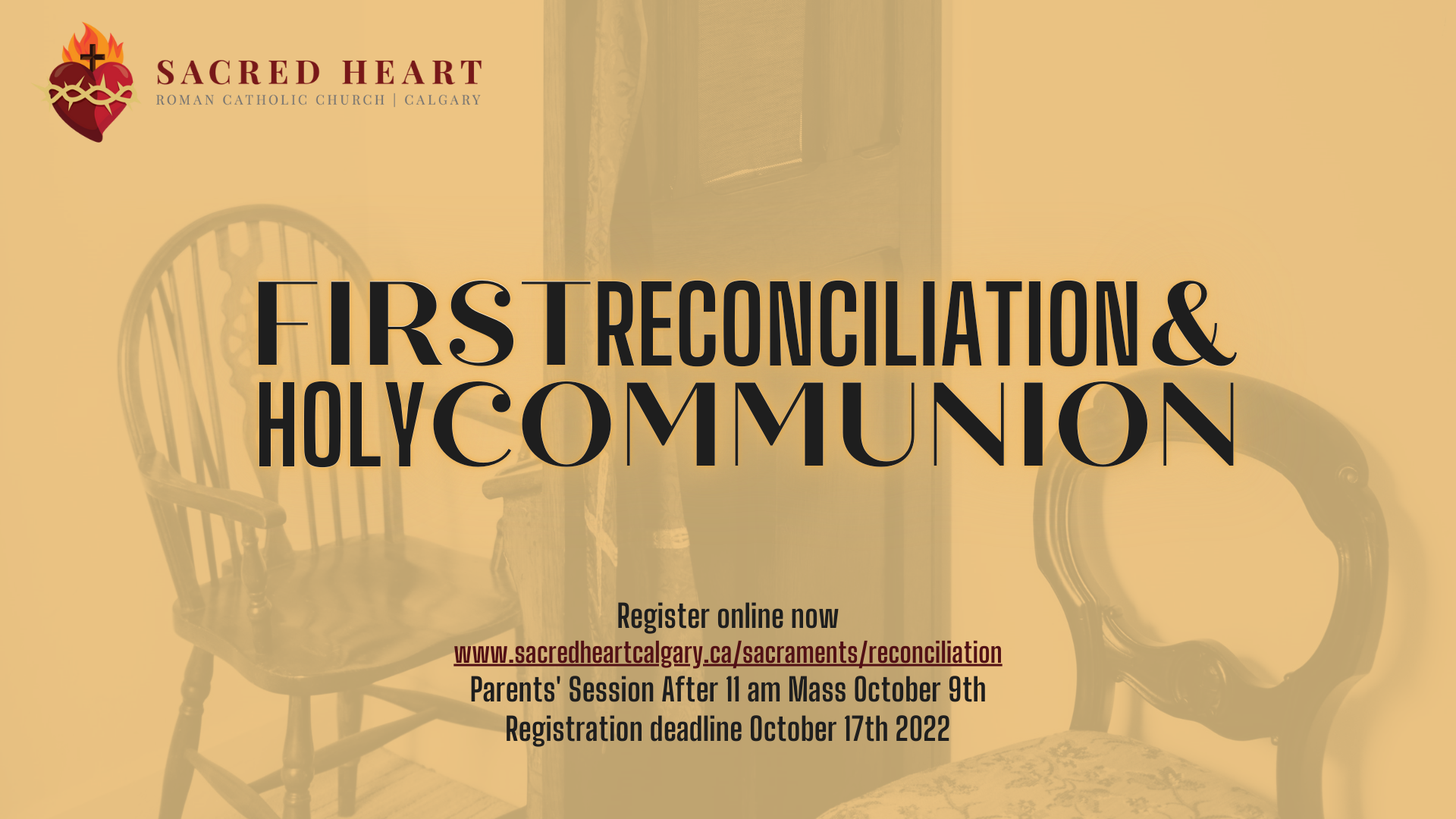Reconciliation
“On the evening of that day, the first day of the week,” Jesus showed himself to his apostles. “He breathed on them, and said to them: “Receive the Holy Spirit. If you forgive the sins of any, they are forgiven; if you retain the sins of any, they are retained.” (John 20:19, 22-23)
Catholics celebrate the sacrament of Reconciliation because we recognize that sometimes we fail to do as we ought and because we believe in God’s mercy and forgiveness. The priest can help you and you can trust the Holy Spirit to guide you.
One who desires to obtain reconciliation with God and with the Church, must confess to a priest all the unconfessed grave sins he remembers after having carefully examined his conscience. This confession of venial faults, without being necessary itself, is nevertheless strongly recommended by the Church.
The spiritual effects of the Sacrament of Penance are:
- reconciliation with God by which the penitent recovers grace;
- reconciliation with the Church;
- remission of the eternal punishment incurred by the mortal sins;
- remission, at least in part, of temporal punishments resulting from sin;
- peace and serenity of conscience, and spiritual consolation;
- an increase of spiritual strength for the Christian battle.
Eucharist
The Eucharist is “the source and summit of the Christian life.” The other sacraments are bound up with the Eucharist and are oriented toward it. For in the blessed Eucharist is contained the whole spiritual good of the Church, namely Christ himself. It is the same Christ, really present under the species of bread and wine, who is the offering of the Eucharistic sacrifice. As with all Sacraments, the Sacrament of the Holy Eucharist invites our participation. As such, we must prepare ourselves for this Sacrament.
For more information and to register, please click on the the link below:
Registration for 2022/23 Sacrament of Reconciliation and First Communion (office.com)




